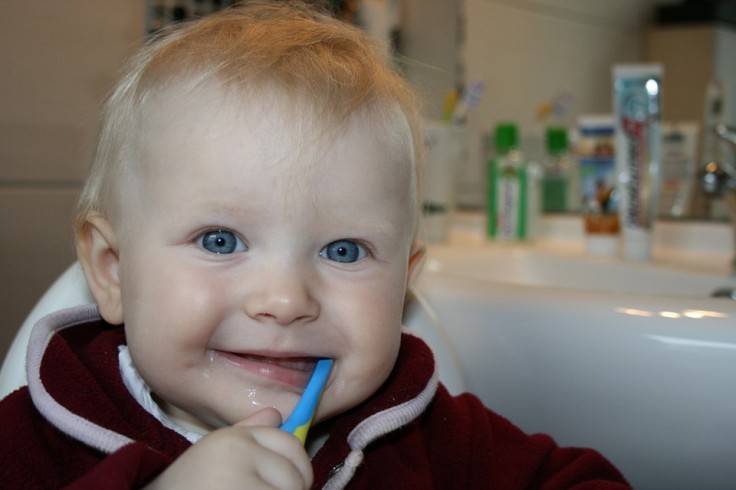
A new research says that teething gels used on babies consist of harmful ingredients. The study gathered 14 different teething gel products including Dentinox, Calgel, Anbesol, and Bonjela Junior. Two of them are said to contain sucrose, six contain lidocaine and the other six contained alcohol.
Nigel Monaghan, a researcher from the Public Health Wales, published the study in the British Dental Journal. He said that there was little evidence that the teething gel products were effective in reducing the teething pain that babies feel. The BDA or the British Dental Association urged all parents to avoid teething gels altogether.
In December 2019, the MHRA or the Medicines and Healthcare products Regulatory Agency announced that teething products that contain lidocaine will no longer be distributed in shops and supermarkets, and they can only be bought in pharmacies. The agency did a review and they found that teething products with lidocaine were connected to a small risk of harm on babies, so there was little evidence that they can work on.
Both the MHRA and the BDA encourages parents to use a teething ring and to massage the gums of their babies instead of using teething gels and other teething products.
What are teething gels?
The teething process can be uncomfortable and painful for babies, they have to deal with sore and sensitive gums, excess saliva production and their teeth slowly tearing through their gums. Teething gels are said to help relieve the pain and discomfort that babies feel.
Teething gels, also known as benzocaine, is an anesthetic that is used to numb the painful area in the mouth. It is also used for gum injury, toothache, and sore gums. It is applied in the painful area and should be spat out or rinsed after a minute.
Are teething gels safe to use on babies?
Because of the way that it should be used, pediatricians warn parents about the usage of teething gels. Because of the chemicals and other ingredients that are added, benzocaine should not be swallowed. Babies can't spit the gel or rinse them in command, so chances are they might swallow it.
This could lead to dangerous side effects. Benzocaine should only be used on children who are 2 years old and above and it should be prescribed by a pediatrician.
Side effects of benzocaine
The FDA is currently taking action against the use of benzocaine on babies. Benzocaine can cause a condition called methemoglobinemia. This condition is deadly because it causes blood to carry less oxygen. Symptoms of this condition include difficulty in breathing, pale or blue-colored lips, skin and nails, racing heartbeat, lightheartedness, tiredness, and headache.
Alternatives to teething gels
In order to help your baby throughout the teething process, you can give cold teething toys that they can chew on. You can massage your baby's gums to ease the pain, just make sure that you wash your hands thoroughly. For babies who are 6 months old and above, you can give them chilled foods like chilled bananas and cold jellies. If massaging your child's gums is not enough, you can use acetaminophen, just make sure that it is prescribed by your child's pediatrician.
ALSO READ: Symptoms to Watch Out for When Your Toddler is Teething